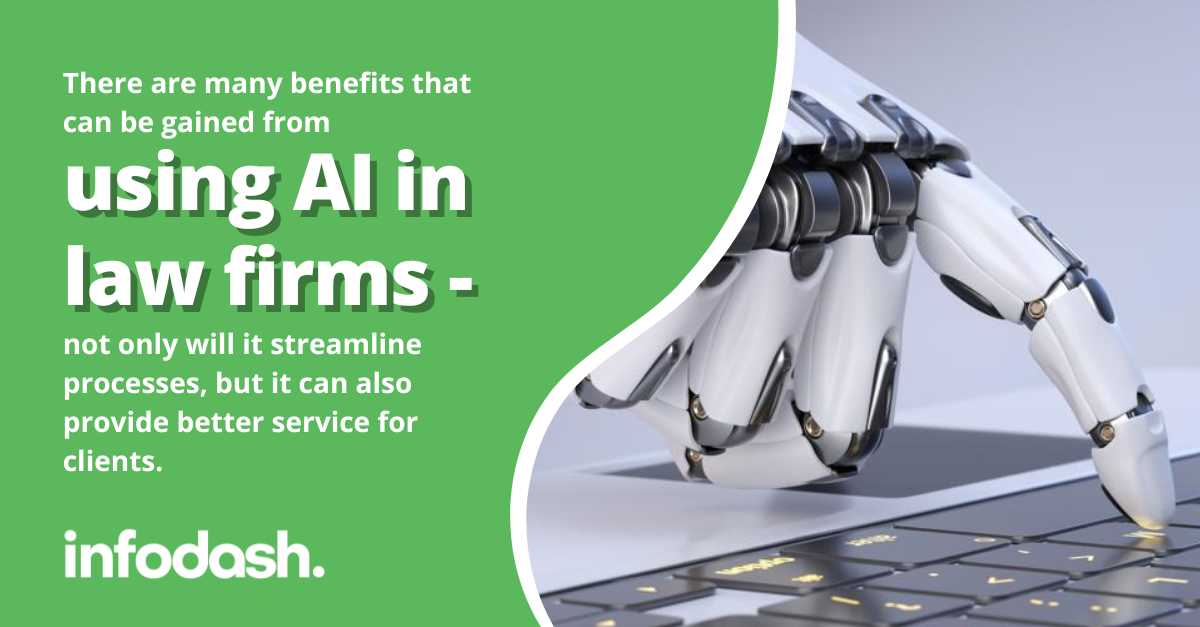How Artificial Intelligence is Transforming the Legal Industry

Artificial intelligence is on the rise in many industries, including legal. The legal industry has been slow to adapt to the ways in which AI can improve their workflows, partly because of the perceived costs associated with implementing AI systems. However, there are many benefits that can be gained from using AI in law firms—not only will it streamline processes and save money over time, but it may also provide better service for clients and even open new markets within the legal industry itself.
ChatGPT, or Chat Generative Pre-Trained Transformer, is an intelligent chatbot that is built on a deep learning model that assesses the significance of the words or phrases in each input and can be used for contract analysis, document review, and legal research. It works by asking questions about your case or matters to understand what you need help with. Then it answers your questions using data from sources like the U.S. National Law Library and LexisNexis.
The legal industry faces some challenges that are driven by trust, security, and cost concerns. First, the Plus version of ChatGPT is not free. Second, there is no way to know if the information you receive through ChatGPT is accurate or even legitimate since it’s not possible to verify who wrote it or when they did so. Finally, there could be any number of people accessing your case file at any given time which means that some may see sensitive information about your case before they should have access to it (e.g., opposing counsel). ChatGPT’s low interpretability could be a challenge for the legal industry. The technology is too new and untested, and its limitations are not clearly understood by most lawyers. This can be overcome by having access to experts in data science who can help break down low-interpretability models into their component parts and provide valuable strategic, contextual, and technical guidance to attorneys and their clients on how best to use these technologies.
One of the biggest challenges for law firms is that most of them still don’t have a full data team. Many still rely on their IT department or an outside consultant to handle the technical aspects of their data projects, which can slow down progress and make it more expensive than it needs to be. Lawyers are also reluctant to give up control over their data analysis efforts because they’re afraid that someone outside the firm will miss something important, so they prefer working with people they know personally rather than relying on an algorithm alone.
As a result, firms have access to experts in data science, whether among in-house staff or through outside consultants. These experts can break down low-interpretability models and provide valuable strategic, contextual, and technical guidance to attorneys and their clients.
Conclusion
The legal industry is a huge market and has the potential to be one of the most disrupted by AI. ChatGPT is an exciting new tool that can help attorneys access experts in data science and get their questions answered faster than ever before. The technology is still in its infancy, so it will take some time before we see widespread adoption by law firms around the world. In the end, AI is a tool that can be used to make lawyers more efficient and save them time. It’s not so much about replacing human lawyers with robots as it is about helping humans do their job better. It’s also important to remember that not every case or client will require an AI solution–sometimes good old-fashioned human judgment is what’s needed most!
Subscribe for Updates


